Nutritional Facts on Beef Tongue Kbbq
This post may contain affiliate links. Please read my disclosure policy for details. As an Amazon Associate, I earn from qualifying purchases.

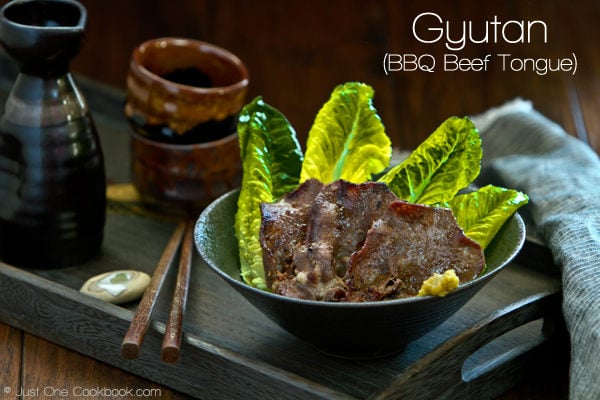
I hope you had a wonderful July 4th celebration yesterday with family and friends. My family had a great time celebrating at a friend's house with a delicious barbecue followed by fireworks nearby. Our friend is a master of smoking the most delicious baby back ribs and I'll be featuring him and his smoked rib recipe later on.
Today I'm guest posting at an extraordinary cook and photographer – Lori Lynn's blog, The Taste With The Eyes .
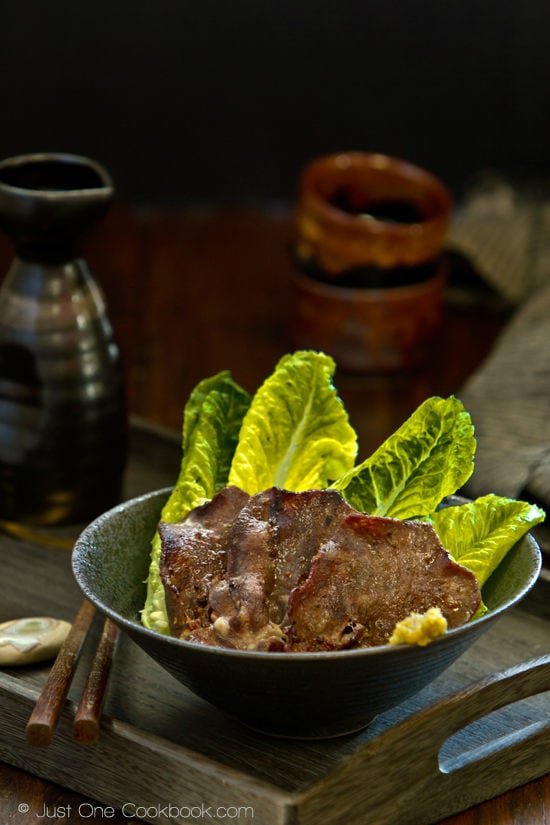
As the blog name suggests, the recipes featured on the website are simply eye candy for anyone into exquisitely prepared food and gorgeous photos. When I look at the food pictures in Lori Lynn's posts, they are not ordinary food that I can imagine myself cooking. In fact, it almost feels like I am at an art gallery that's exhibiting food photography. Her creations are so beautiful that you easilytaste with your eyes first (unfortunately it's a blog so you can't actually taste it too. How sad!). It's a cliche but I have to say it here. If you haven't visited her blog before, you must stop by. Among her posts, some of my favorites are summer's chilled soup star and Meyer lemon and pink rose risotto.
I've known Lori Lynn and her blog for about a year and she's now celebrating her 5th blog anniversary this month. I am honored that she has invited me to participate on her site, where she displays outstanding food that I truly admire. If you are a food blogger, you'll understand what I mean. I cherish her culinary talent and friendship and hope to continue learning from her.
I won't continue babbling on and it's much easier to for me to explain if you just pop over and take a look at her creations. For the guest post, I cooked something exotic as per her request. Please check the recipe as well as detailed information about gyutan by clicking HERE .
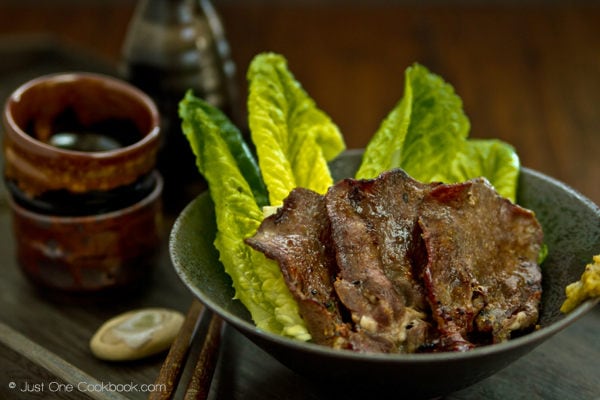
Gyutan is grilled sliced beef tongue and the Japanese word gyutan is a combination of the Japanese word for cow (gyu) and the English word tongue (tan). The region in Japan that first started to cook gyutan was Sendai and it was initially considered a rather unusual dish, but gradually gained popularity throughout Japan around the 1950s.
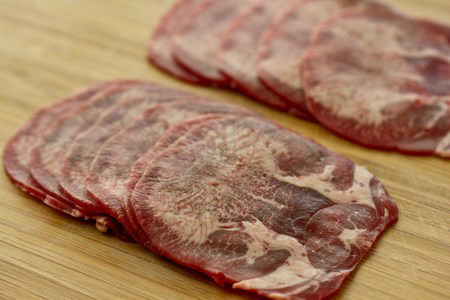
Gyutan is one of the popular items to order at yakiniku (Japanese barbecue) restaurants. We usually grill these thinly sliced beef tongue and flavor it with salt. However, the way my husband and I like to eat gyutan is with yuzu juice and yuzu kosho (citrus pepper).
Yuzu is a citrus fruit fondly used for many Japanese dishes and desserts. We use the aromatic zest is for garnishing and its juice for seasoning. It's quite hard to find fresh yuzu fruit, so I get this yuzu juice bottle from a Japanese supermarket.
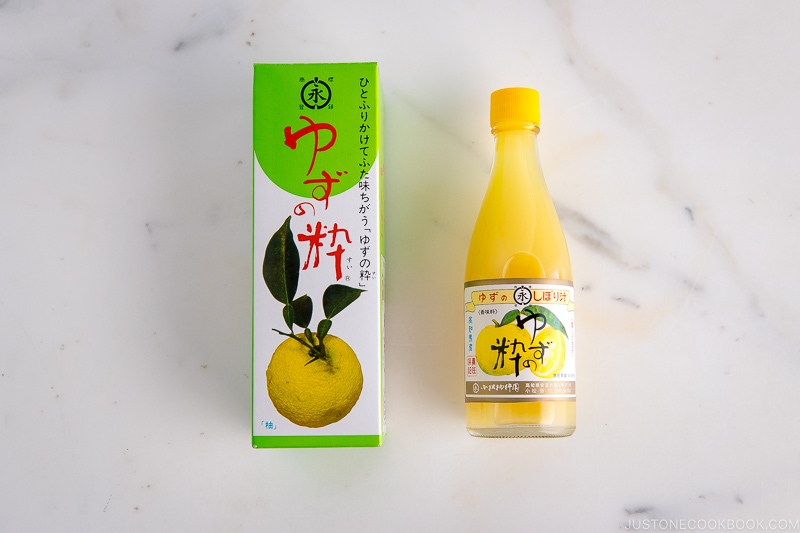
Yuzu kosho is a fermented paste made from chili peppers, yuzu peel, and salt. We use it for flavoring yakitori (Japanese grilled chicken), udon soup, tempura, sashimi, and Japanese hot pot. Yuzu kosho may come in a jar or in a small tube container.
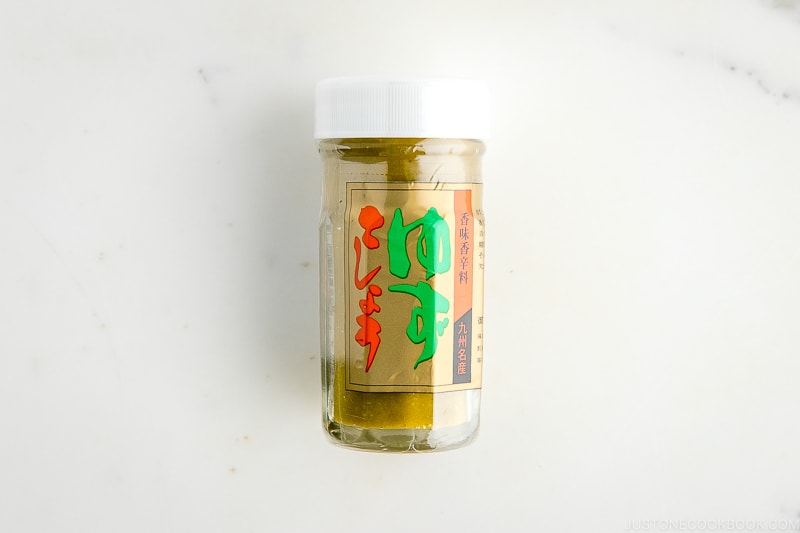
Both yuzu juice and Yuzu kosho gives a nice tart and spicy kick to the gyutan and it adds a level of sophisticated flavor that is difficult to replicate with other spices. Another favorite to enjoy sliced gyutan is to just simply sprinkle with a bit of salt and pepper, barbeque, and dip in lemon sauce. Gyutan burns and catches fire very easily when you barbeque so be careful while you cook.
Sign up for the free newsletter delivered to your inbox and stay in touch with me on Facebook, Pinterest, YouTube, and Instagram for all the latest updates.
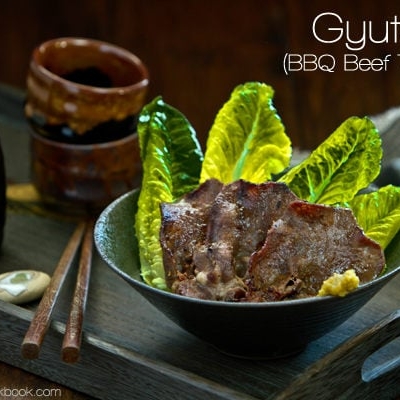
Gyutan (BBQ Beef Tongue)
Delicious gyutan recipe, barbecue sliced beef tongue marinated in yuzu pepper, onion, sesame oil and soy sauce.
Servings: 2 (as appetizer)
Prevent your screen from going dark
- ¼ lb beef tongue slices (you can buy it in a Japanese supermarket)
Japanese Ingredient Substitution: If you want substitutes for Japanese condiments and ingredients, click here.
-
Gather all the ingredients.
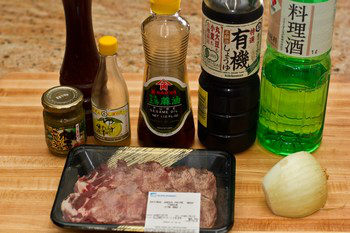
-
Combine all the seasonings in a small bowl and whisk together.
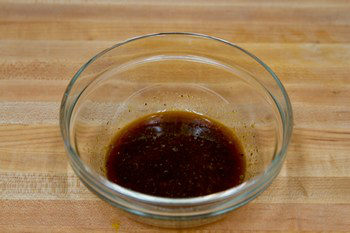
-
Spread the sauce on the container.
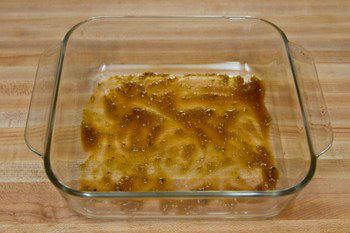
-
Spread the beef tongue without overwrapping each other and pour the rest of the sauce on top.
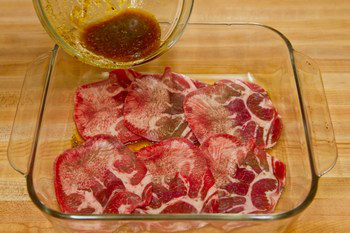
-
If you like, you can grate onion on top and marinade the beef tongue for at least 30 minutes. Do not over marinade since the tongue will become too salty.
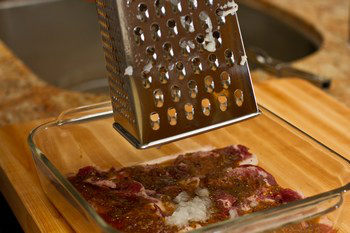
-
Start the grill, preferably over charcoal.
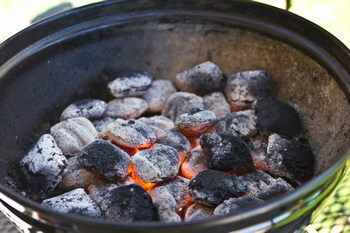
-
Grill on high heat for 1-2 minutes.
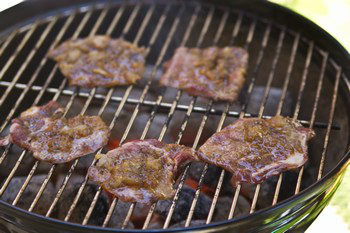
-
Flip the meat and cook for another 1-2 minutes. Serve immediately with small amount of yuzu kosho on the side.
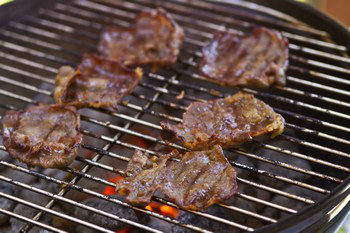
To Store
-
You can keep the leftovers in an airtight container and store in the refrigerator for up to 2 days.
Calories: 150 kcal · Carbohydrates: 3 g · Protein: 9 g · Fat: 7 g · Saturated Fat: 4 g · Polyunsaturated Fat: 1 g · Monounsaturated Fat: 1 g · Cholesterol: 50 mg · Sodium: 291 mg · Potassium: 180 mg · Sugar: 2 g · Vitamin A: 1 IU · Vitamin C: 2 mg · Calcium: 15 mg · Iron: 2 mg
Course: Appetizer
Cuisine: Japanese
Keyword: bbq, beef
©JustOneCookbook.com Content and photographs are copyright protected. Sharing of this recipe is both encouraged and appreciated. Copying and/or pasting full recipes to any website or social media is strictly prohibited. Please view my photo use policy here.
If you made this recipe, snap a pic and hashtag it #justonecookbook! We love to see your creations on Instagram @justonecookbook!
Subscribe Now!
5 Secrets to Japanese Cooking: Simple Meals & Authentic Flavors!
Sign up to receive our FREE email series on Japanese cooking tips and weekly newsletter.
saephanfradenurry.blogspot.com
Source: https://www.justonecookbook.com/gyutan-bbq-beef-tongue/

0 Response to "Nutritional Facts on Beef Tongue Kbbq"
Post a Comment